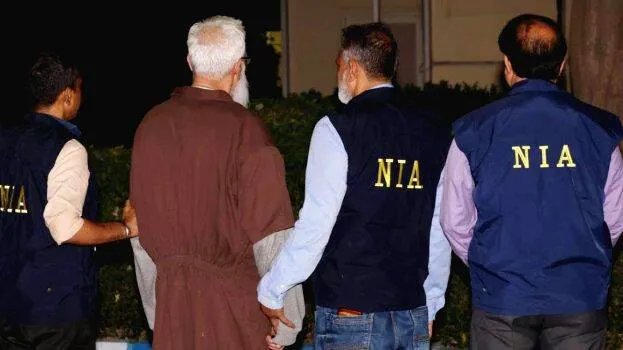

The Mumbai massacre on November 26, 2008, carried out by ten Pakistani terrorists who arrived by sea, remains one of the deadliest terrorist attacks in India's history. It claimed the lives of 166 people, including senior police officers Hemant Karkare, Ashok Kamte, Vijay Salaskar, and Malayali NSG commander Sandeep Unnikrishnan. Around 3,000 people were injured. India accused Pakistan's spy agency, ISI, of orchestrating the attack, but Pakistan denied the allegations and demanded evidence. Among the attackers, Ajmal Kasab was captured alive by Mumbai police sub-inspector Tukaram Omble, martyring his own life. Despite this evidence, India did not retaliate at the time.
Years later, following the Pulwama incident, India responded by bombing Balakot within weeks. The Mumbai attack turned out to be even more devastating than the terrorists had planned. Allegations surfaced that the attackers received help from within India, and many of those involved are believed to still be in hiding. Tahawwur Hussain Rana, a Canadian of Pakistani origin and a key accused in the Mumbai attack, was recently arrested by the Indian National Investigation Agency (NIA) after over a decade. He was brought to India from the United States on a special Indian Air Force flight.
This achievement is a significant milestone in India's fight against terrorism. It serves as a warning to those planning attacks against India from foreign hideouts. Rana's capture highlights that India is no longer the same as it was in the past. Beyond his trial and punishment, the intelligence gathered from him is crucial. He may reveal the names of ISI officers involved in the Mumbai attacks and their collaborators within India.
Rana had visited Kochi during his trips to India, but it is unclear if he had any contacts in Kerala. He will face questioning about this while in custody. Any country that faces attacks across its borders will retaliate, as seen in Israel's actions. The mastermind behind the World Trade Center attack, which killed 3,000 people in the United States, was eliminated in a midnight operation in Pakistan. Terrorists operate through violence, and they can only be countered in the same language. India is evolving to meet this challenge. While preserving its cultural and traditional roots, India is emerging as a nation capable of strong retaliation.